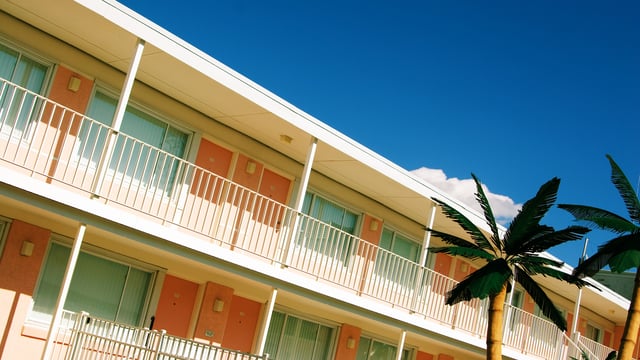
When we talk about innovation in hospitality technology, luxury hotels and global chains tend to dominate the conversation. But if we look beyond the five-star properties and resort brands, another story is unfolding, one that’s arguably more radical in its transformation. Once synonymous with no-frills roadside lodging, motels are stepping into the spotlight as some of the most tech-forward and surprisingly investable players in U.S. hospitality.
Their evolution hasn’t happened overnight, but it has been bold. OYO’s $525 million acquisition of Motel 6 and Wyndham’s modernization of Super 8 are just two signals that motels are no longer hospitality’s underdogs. They’re becoming a sweet spot for affordability, operational efficiency, and digital sophistication.
And the numbers back it up. According to the Global Software Market report, the motel software segment is projected to grow from $374 million in 2020 to $959 million by 2031, with a compound annual growth rate of 9.44%. This growth reflects more than just investor interest. It points to motels’ agility in embracing technology to streamline operations and meet modern guest expectations.
Part of this transformation is being driven by a shift in what travelers value. Guests today want affordability but they’re also looking for a high level of convenience, personalization, and even design. We’re now seeing more motel operators invest in thoughtful room upgrades such as design-forward interiors, smart TVs, fast Wi-Fi, and contactless check-in, all of which bring the guest experience closer to that of a boutique hotel, while still offering value for money.
It’s not about chasing luxury, but about rethinking what a ‘budget stay’ looks and feels like. In many cases, today’s motels are delivering a polished, tech-enabled experience that appeals to younger travelers, remote workers, and road-tripping couples who might once have booked an Airbnb or trendy city hotel. It’s affordable hospitality with a sharper, more experience-led focus.
At the heart of this trend is the intersection of necessity and opportunity. Motels have always relied on lean operations, small teams, and tight margins. In today’s tech-driven environment, those conditions have turned into advantages. Without the layers of bureaucracy that often delay progress in larger properties, motel operators can adopt new technologies with impressive speed. Cloud-based systems, contactless check-in tools, mobile room access, and automated housekeeping protocols are becoming standard and not the exceptions.
One of the biggest advantages technology brings to motels is its ability to optimize resources while improving the guest experience. Streamlined workflows mean staff spend less time on manual tasks and more time resolving complex issues. Automated messaging systems can guide guests through check-in, offer upgrades, and follow up post-stay, without involving a front desk agent. These improvements don’t just cut costs, they contribute directly to guest satisfaction.
There’s also a strategic shift in how motels approach data. They’re now using analytics to understand occupancy patterns, adjust pricing dynamically, and tailor offers to guest behavior. This is particularly significant because it demonstrates that revenue management is no longer reserved for high-end or large-scale operations. Tools that help track booking trends, respond to local demand, and anticipate cancellations are now available in packages suitable for smaller properties. With the right integrations, motels can compete with much larger players on both yield and strategy.
From an IT perspective, what makes this movement interesting is its impact on infrastructure and cybersecurity. As more processes go digital, motel operators are becoming more aware of the responsibilities that come with handling sensitive data. The risks of fraud, breaches, and non-compliance with standards like PCI DSS are real and growing. But the industry response is evolving. More motels are investing in secure gateways, conducting regular audits, and ensuring staff understand basic cyber hygiene. These efforts are helping shift perceptions and bring smaller properties in line with enterprise-level expectations.
What’s most compelling, though, is that this evolution isn’t about copying big hotel brands. Motels aren’t trying to become something they’re not. Instead, they’re leaning into what they do best—providing clean, affordable, accessible lodging—while using technology to sharpen that offering. The tech isn’t a flashy add-on, it’s the new foundation.
There’s a lot to learn from the motel sector’s trajectory. Their success is a reminder that size isn’t the only driver of innovation. Agility, clarity of purpose, and the ability to make smart tech investments can have an even greater impact. And perhaps most importantly, motels are showing us what it looks like when technology isn’t just adopted for its own sake, but integrated purposefully into a business model that already works.
Motels may never have the prestige of five-star chains, but they don’t need it. Their quiet revolution is making them more efficient, more secure, and more aligned with the needs of today’s travelers. And for the rest of the hospitality industry, that’s a model worth watching.
About the Author
Zunaid (Zen) Valli, Chief Revenue Officer at RMS, leads revenue strategy and growth initiatives across Australia, New Zealand, Asia, India, EMEA, and the Americas. With over 16 years of experience in revenue management, sales, and business development, combined with a passion for hospitality, he plays a key role in driving sustained growth and strengthening RMS’ market presence.










